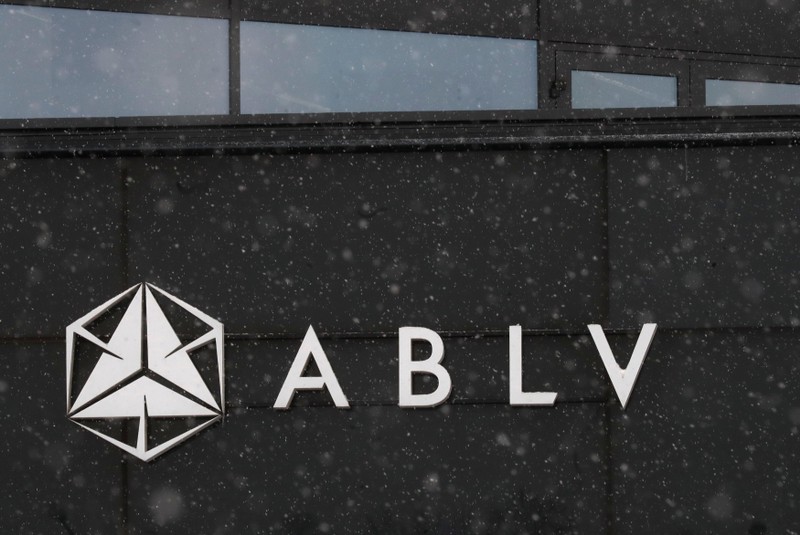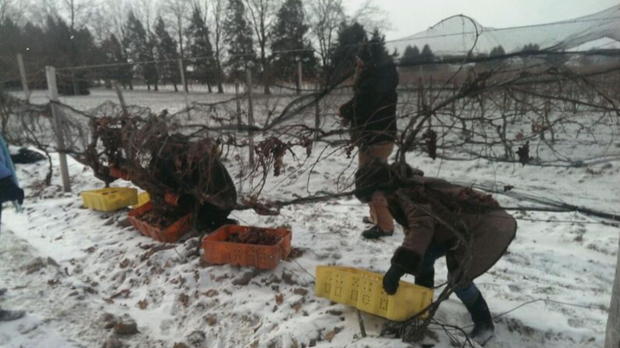
FILE PHOTO: A logo of the ABLV Bank is pictured in Riga, Latvia February 18, 2018. REUTERS/Ints Kalnins
February 24, 2018
By Balazs Koranyi and Gederts Gelzis
FRANKFURT/RIGA (Reuters) – Latvia’s ABLV Bank is failing or likely to fail and will be wound up as saving it is not in the public interest, the European Union’s Single Resolution Board and the European Central Bank (ECB) said separately on Saturday.
Accused by U.S. authorities of large-scale money laundering, ABLV failed this week to come up with a survival plan as customers fled and management could not come up with sufficient cash, despite offers of emergency central bank liquidity.
Privately held ABLV, Latvia’s third-biggest bank, has been in focus since U.S. authorities accused it of covering up money laundering, bribing officials and facilitating the breach of sanctions against North Korea.
“Due to the significant deterioration of its liquidity, the bank is likely unable to pay its debts or other liabilities as they fall due,” the ECB, ABLV’s supervisor, said. “The bank did not have sufficient funds which are immediately available to withstand stressed outflows of deposits before the payout procedure of the Latvian deposit guarantee fund starts,” the ECB added.
Latvian Prime Minister Maris Kucinskis said the country’s authorities would gather for an emergency meeting on Monday following the failure as they keep watch for any fallout on other banks.
Kucinskis said Latvian authorities and local and international experts need to agree on steps to improve financial supervision.
“That´s why the emergency meeting of the Financial Sector Supervision Council has been called on Monday … and this question has also been put on the agenda of the government (next week),” Kucinskis said in an emailed statement to Reuters.
“I am convinced both about the stability of the Latvian financial sector and the ability to take significant steps so that the banking sector could regain its reputation,” Kucinskis added.
Latvian Finance Minister Dana Reizniece-Ozola told a news conference depositors with ABLV were entitled to have their funds guaranteed. “From this moment, or from the 7th March, the bank’s clients, depositors, are able to have the payment of guaranteed deposit during eight working days,” Reizniece-Ozola said.
CRITICAL FUNCTIONS
The U.S money laundering accusations, denied by the bank, destabilized the lender and around 600 million euros worth of deposits left within days, forcing the ECB to suspend all payments on Monday to prevent a disorderly collapse.
The Resolution Board noted ABLV does not provide critical functions and its failure is not expected to have a significant adverse impact on financial stability.
ABLV said it had fulfilled its regulatory requirements but was not allowed to resume operations due to “political considerations.”
“The bank emphasizes: the amount of its assets is sufficient to satisfy demands of all clients and creditors. All deposits guaranteed by the Deposit Guarantee Law shall be disbursed with the funds of ABLV Bank,” it said in a statement.
The bank, like many others in Latvia, has sizable deposits from foreign clients, many from Russia and Ukraine. Around 40 percent of all bank deposits in the Baltic country are from non-residents, and international agencies have long warned that some are related to illegal activities.
To combat money laundering, Latvia announced plans on Friday to gradually halve the share of bank deposits held by non-residents. But that was not enough to save ABLV, which had until Friday to present the ECB with a credible survival plan or face closure.
Hinting at its eventual fate, Latvian Finance Minister Dana Reizniece-Ozola said the state would not step in to rescue ABLV if it were about to collapse.
“ABLV is not regarded as a systemic bank, which means the government would not rescue it because its exposure to the Latvian economy is low,” Reizniece-Ozola said. “There is some systemic importance (but) … it is not crucial or critical.”
($1 = 0.8129 euros)
(Reporting by Balazs Koranyi; Additional reporting by Helena Soderpalm in Stockholm; Editing by Leslie Adler and David Holmes)

